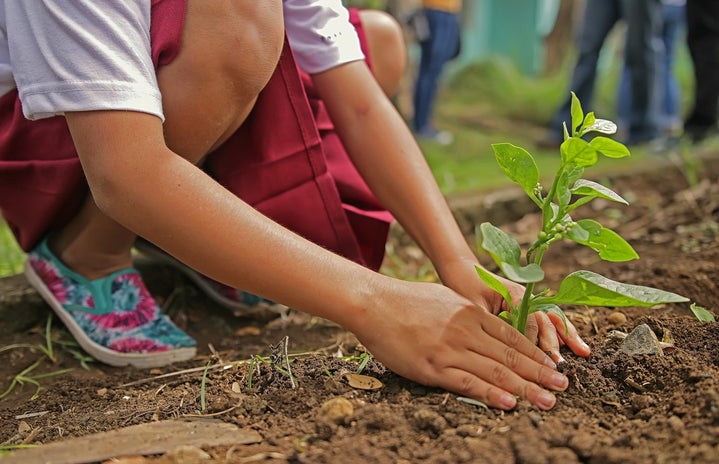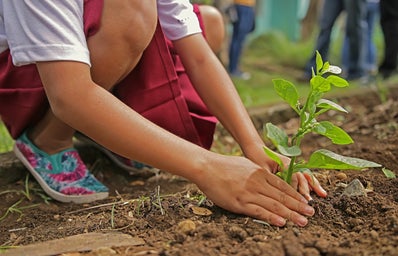In September of 1941, the Siege of Leningrad occurred. Nazi Germany invaded what is now St. Petersburg, Russia, and deliberately cut the civilian’s food supply to starve them to death. However, as weird as it may seem, there was another group of Russian botanists from the Institute of Plant Industry who chose to die of starvation during this siege. Why? The Institute of Plant Industry, also known as the Vavilov Institute, held in its vaults the greatest seed collection in the world. The scientists died of starvation in their attempt to guard the collection.
Now, I’m not asking for these extreme circumstances to happen again. I surely don’t see myself choosing death over saving seeds anytime soon. But, I swear there’s a lesson here.
Environmental issues are on a lot of people’s minds right now. Climate change is causing higher temperatures, which causes water to rise, which causes floods in vulnerable areas, which ruins agricultural land, which limits food supply, which affects human health. You’ve heard it all before. I mean, we even have a name for it: eco-anxiety.
I thought I could bring up a topic that I don’t think is discussed enough when talking about climate change issues, how to transform our agricultural system, or who is to blame for the problems we’re facing today. It’s seeds! Yes, those tiny grain-sized seeds that you feel act as magic fairy dust in a garden or field. Seeds provide a glimpse into the past and the future. That’s why those Russian scientists fought so hard to keep the seeds in place; they knew their value. They knew how much rich biodiversity they can provide, how we could use them once certain seed varieties are lost. So, why are they so important?
Seeds provide the biodiversity that we are so in need of today. Having a more biodiverse ecosystem allows for more nutritional and food security, it helps species adapt to the ever-changing temperatures, and it develops stronger plants that can more easily fight diseases. We worry so much about these environmental issues plaguing us and then we look outside our window to see hundreds upon hundreds of monocultures. We see corn in the Midwest. Wheat in the Pacific Northwest. Cotton in the South. Why, then, are we planting one crop in our entire plot instead of maximizing biodiversity?
Throughout the 1900s, the agricultural industry became extremely driven by money. Monsanto, the world’s largest seed supplier, is notorious in this sector. Monsanto, especially now since its merger with Bayer, a pharmaceutical company, was able to acquire a monopoly in the agricultural supply industry. The catch? They also are among the largest pesticide distributors globally, which means they are supplying seed varieties that work best with their own pesticides, so now farmers have to buy both their seeds and pesticides from these companies in order to get the yield they desire.
Despite this unfortunate consolidation in the seed industry, there are still things that can be done. Farmers can engage more in informal seed systems, meaning trading seeds directly with their neighbors and saving seeds for the next season. If they have the financial ability, growers can buy directly from smaller seed companies that source diverse, nutrient-rich, and local seed varieties. We can decide as a nation to place more importance on seed vaults, like the one in the Vavilov Institute, or the one in Svalbard, Norway. It is not too late to educate people, whether they be farmers themselves or just consumers, on choices they can make to better sustain biodiversity. Just as plant growth starts with a seed, the solution to keep our ecosystems thriving will also start with seeds.
**Edited by: Addison Molloy


